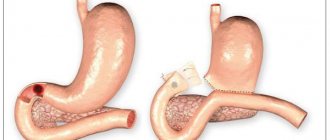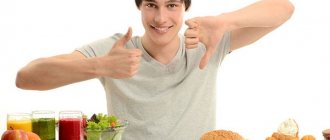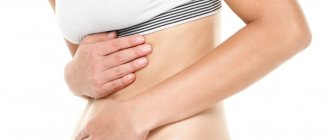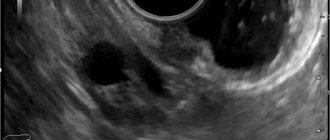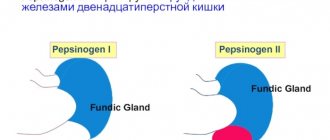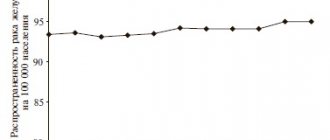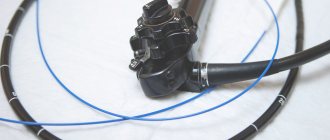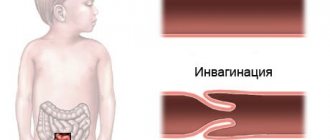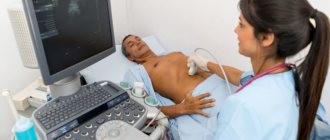Many factors can lead to symptoms such as constipation. It is possible to normalize intestinal function during constipation only by eliminating the primary disease. If this is not done, then some time after treatment, the symptom will return again. The appearance of coprostasis is indicated not by the frequency of bowel movements, but by difficulties and discomfort during bowel movements.
So, if defecation is less than once a day, but emptying does not cause discomfort or pain, and the fecal cylinder is of normal size and consistency, then there is no talk of constipation. If, during the act of defecation, you have to strain, the feces are fragmented (“sheep” feces) or the fecal cylinder is too large, then, despite the frequency of bowel movements, we can talk about a malfunction of the organ.
Coprostasis can develop due to a disruption in the process of feces formation or a deterioration in the passage of feces through the intestines, which directly depends on the motor activity of the organ, the position of the colon, the diameter of its lumen, as well as the amount of intestinal contents. Stool retention can be caused by organic or physiological pathology.
In case of organic pathology, surgical intervention is necessary, since constipation is caused by anatomical changes in the intestines. With physiological disorders, intestinal motor activity is slowed down as a result of deterioration of innervation. It is possible to improve intestinal function during constipation associated with atony through diet, exercise, taking medications and developing a reflex to defecate.
Causes of intestinal motility disorders
Before starting treatment measures, it is necessary to find out the cause of stool retention and, if possible, eliminate it. Depending on the causes, constipation can be:
Nutritional
Normally, proteins, fats and carbohydrates should be almost completely broken down in the human small intestine, and the bulk of waste is fiber and plant fibers that are not digested. People who eat processed, quickly digestible foods for a long time may develop persistent constipation. If the diet contains a lot of protein products, flour dishes, fast carbohydrates, then they are quickly digested by enzymes and form a small amount of feces, which are unable to irritate the intestinal walls and cause their contraction.
A nutritional factor is rarely the only cause of constipation; it is often combined with a sedentary lifestyle. Stool retention can also be caused by insufficient fluid intake, since stool dries out, becomes dense, and this makes it difficult for them to move through the intestines. Constipation can also occur in people who are on a bland diet for a long time, because they cannot chew food.
Neurogenic
Constipation develops as a result of a violation of the nervous regulation of intestinal motility, which can be triggered by stress and depression. Difficulties with defecation occur because the functioning of the autonomic nervous system deteriorates. With pathology, both a complete decrease in peristalsis and an increase in peristalsis in a certain area can occur (dyskinetic constipation); hypokinetic.
The receptors of the nervous system of the colon are not sufficiently stimulated or partially lose the ability to perceive the stimulus. Difficulty in bowel movements occurs because little feces are produced, due to blockade of the parasympathetic nervous system, or as a result of an increase in the threshold of receptor sensitivity, which may be due to the frequent use of strong irritants, for example, enemas or strong laxatives.
Constipation affects the entire gastrointestinal tract
Reflex
Pathologies of various parts of the digestive or genitourinary system lead to disruption of the motor activity of the colon, and can provoke paresis or spasms of the intestinal muscles, a disorder of the peristaltic wave. Constipation often occurs in people with peptic ulcers, diseases of the hepatobiliary or genitourinary system (pancreatitis, cholecystitis, prostatitis, urolithiasis, adnexitis).
Habitual
These constipations are formed as a result of ignoring the urge to defecate. As a rule, young children suffer from habitual constipation, because they do not want to go to the toilet or sit on the potty and restrain the urge, and the feces become compacted and have difficulty moving through the intestines. If there are no additional causes of constipation, then intestinal motility is not impaired, since feces accumulate in the rectosigmoid part of the intestine, and other parts remain free.
Other
Constipation can also be:
- organic, caused by diseases of the central nervous system. They can be triggered by cerebrovascular accident, traumatic brain injury, multiple sclerosis, tumors, myelitis, meningitis and other diseases that usually lead to impaired urination;
- inflammatory. They develop in diseases of the large and small intestines (colitis, enteritis, diverticula), since local intestinal reflexes are disrupted, changes occur in the intestinal mucosa and intestinal contents;
- mechanical. The movement of feces is difficult as a result of blocking the intestinal lumen with foreign bodies, fecal stones, tumors, scars;
- medicinal. Many medications can disrupt colonic motility and cause deterioration in intestinal absorption. If you have been taking anticholinergic drugs, sedatives, tranquilizers, ganglion blockers, antacids, iron or calcium, or laxatives for a long time, then there is a high probability of developing constipation;
- endocrine. Hormonal dysfunction leads to impaired intestinal motility.
Constipation can also occur as a result of disturbances in water-electrolyte metabolism, when stool becomes too dry, viscous and hard. Therefore, often after the body loses a lot of fluid (for example, with diarrhea, fever, ascites, potassium deficiency, kidney disease, forced diuresis, heart failure), coprostasis develops.
It is possible to find out the true cause of constipation only after conducting a hardware examination, so it is necessary to consult a doctor to make a diagnosis and eliminate the etiological factor.
Treatment tactics for constipation depend on the reasons that provoked the symptom. Thus, for nutritional constipation, the main recommendation is to follow a therapeutic diet; for medical constipation, stool can be normalized only by replacing medications; for mechanical constipation, surgical intervention is indicated; and for inflammatory and reflex constipation, treatment with anti-inflammatory drugs is required.
If poor bowel function is noted, then it is necessary to solve the problem comprehensively
Despite the cause of coprostasis, the doctor recommends adhering to a corrective diet, leading a more active lifestyle and developing the habit of bowel movements at the same time of day.
Temporary stool disorders
Often, defecation disorders are transient. This is especially evident in the first months of a baby’s life due to insufficient formation of the child’s neuromuscular system. Over time, these disorders disappear on their own, without medical intervention.
Temporary stool disorders that do not cause harm to the baby’s health are associated with:
- with a small volume of fluid consumed, which makes it difficult for feces to move through the intestines;
- general intoxication and dehydration due to a general infectious process (acute respiratory viral infection, intestinal disease) - in this case, the child loses a lot of water through sweat and vomiting;
- improper nutrition of a nursing woman (insufficient amount of fluid in the diet, unbalanced diet, small amount of fruits and vegetables, lack of fiber);
- a small amount of breast milk, which reduces the total calorie content of the child’s diet;
- introduction of complementary foods too early or improper use of baby food;
- frequent use of enemas, special tubes for removing gas from the baby;
- teething - the general emotional background of the child changes, he becomes irritable, nervous, which affects peristalsis.
Finally, psychological factors also become the cause of frequent constipation: excessive contact of the baby with new people, frequent moves, constant use of nanny services, low level of contact between mother and child.
As soon as these factors are eliminated, the baby’s stool returns to normal, and the baby no longer suffers from constipation.
Diet for constipation
Dietary nutrition involves consuming foods that contain large amounts of fiber and enhance intestinal motility. Sour milk, wholemeal bread, fruit juices, dried fruits, vegetable oil drunk on an empty stomach will speed up bowel movements. You can improve intestinal motility by drinking cold liquid, so it is recommended to add cold first courses to your diet, and drink a glass of cold juice or water in the morning.
Nutrition for constipation in adults
You need to eat in small portions, but every 4 hours. This will help food digest better, which means you will be able to avoid increased gas formation.
Foods containing dietary fiber will help improve bowel function during constipation. These are all vegetables and fruits, cereals, nuts, seeds. Salads made from carrots, beets, cucumbers, tomatoes, cabbage, seasoned with vegetable oil are healthy.
Pumpkin, plums, apples, peaches weaken. Fermented milk products (kefir, fermented baked milk, yogurt, cottage cheese, buttermilk, yogurt) are beneficial for the intestines, as they help normalize the composition of the microflora. To improve bowel movements during constipation, you need to eat cereals daily. It is better to cook porridge from buckwheat, oatmeal, millet or corn groats.
It is necessary not only to add laxative foods to the diet, but also to avoid foods that have a strengthening effect or cause increased gas formation. You should avoid rice, jelly, potatoes, legumes, black or fresh bread, whole milk, fried, hot and spicy foods. Drinking enough fluids will help improve bowel function during constipation.
A person should consume approximately 30 ml of liquid per kilogram of weight per day. Not only clean drinking water is considered, but also compotes, juices, and broths. If there is not enough fluid in the large intestine, the feces quickly become dehydrated, they become hard and dry, making their evacuation difficult.
Lack of water in an adult can lead to the formation of fecal stones, when dry feces are layered onto the core (an undigested piece of food, a foreign body) and partially block the intestinal lumen. You can restore intestinal function using the advice of traditional medicine. To cleanse the intestines and facilitate bowel movements, senna, flax, buckthorn, rose hips, rhubarb, and zoster are used.
To normalize stool, food is prescribed that corresponds to treatment table No. 3
If the feces are hard and difficult to pass, then to soften them it is recommended to make a decoction of dandelion, nettle, flaxseed or borage. Flax or white plantain seeds swell in the intestines, which enhances peristalsis and promotes the movement of feces.
The seeds of dill, cumin, and fennel have a carminative effect, so they are recommended for use in case of increased gas formation. Plant materials can be purchased at a pharmacy or collected yourself.
It is necessary to select a diet for difficulties with bowel movements together with a specialist, since it may have its own characteristics depending on the diagnosis. For example, for dyskinetic constipation with hypermotility, a diet is prescribed that contains a sufficient amount of animal fats, and fiber is introduced gradually, starting with more tender ones.
Causes of weak peristalsis
Many factors influence intestinal function, and now we will try to find out which of them slow down and even completely stop peristalsis, and which can stimulate intestinal motility.
Reasons that slow down peristalsis:
- Unbalanced nutrition , when the diet is dominated by foods with high calorie content, foods of artificial origin (fast foods with a lot of spices and sauces and foods with added chemicals - chips, crackers), lack of regularity of meals, its speed (eating a sandwich on the way to office).
- Treatment with antibiotics or other drugs that reduce the balance of intestinal microflora.
- Diseases of the gastrointestinal tract of all parts, including the stomach, liver, and gall bladder.
- Tumors in the intestine, both small and large.
- Behavior of surgical intervention on the intestine.
- Inactive lifestyle , constant sedentary work, frequent climate change.
- Predisposition to constipation, its chronic course.
- Frequent stress, negative experiences.
- Disturbance in the functioning of nerves, improper innervation of the intestinal walls.
Factors that enhance intestinal motility:
- Constant walking and exercise.
- Maintaining a balanced diet.
- Compliance with the drinking regime is very important for constipation in order to soften the masses and improve their passage through the intestines.
- Using intestinal stimulation - massages and morning warm-ups.
- Normalization of lifestyle, regular and sufficient sleep, adherence to a schedule.
- Undergoing constant annual medical examination and timely treatment of intestinal diseases.
If your life mostly or even completely consists of items on the first list, then do not be surprised that intestinal motility weakens.
To prevent and correct this, live according to the points in the second list and then intestinal problems will leave you for a long time.
But if peristalsis is already impaired for some reason, then there are means to improve intestinal motility in adults and children.
Development of a reflex to defecate
Diet is very important in the treatment of constipation, but sometimes it does not work if the patient does not develop the habit of bowel movements at certain times of the day. In order to strengthen the reflex, it is recommended to stimulate the act of defecation at the same time for several days. The most physiological is considered to be bowel movement 15–30 minutes after breakfast.
To speed up intestinal peristalsis, you need to drink a glass of cold water or juice in the morning on an empty stomach, then have a hearty breakfast. If, half an hour after eating, the urge to defecate does not arise, then you should try to induce it. To do this, you can massage the abdomen (stroking the abdomen clockwise), rhythmically retract the anus, press the area between the tailbone and the anus, squat, and perform physical exercises.
If the urge does not arise, then you can use a glycerin suppository. You should not sit on the toilet for a long time and push, as this can lead to the development of pathology in the anorectal area. The most physiological position is considered to be when the knees are slightly higher than the pelvis; for this, during bowel movements, you can put your feet on a low stand.
It is strictly forbidden to restrain the urge to defecate, since in this case the feces quickly dry out and move much more difficult through the intestines.
ethnoscience
Before drinking pharmaceutical medicine, try these methods to enhance peristalsis :
Wheat bran
- Take two apples and grate them. Add to them a tablespoon of honey and two tablespoons of oatmeal. Squeeze the lemon juice and add it and a couple of tablespoons of warm water to the mixture. Eat it throughout the day.
- Grind plantain seeds and take a teaspoon of them with meals.
- A couple of tablespoons of wheat bran are washed down with a small amount of water or mixed with it and eaten for breakfast.
- Take ten grams of buckthorn root and pour half a liter of boiling water over it. Let the broth brew and drink it throughout the day instead of tea.
- Take two glasses of dried apricots and prunes and grind them in a meat grinder. Add to them a package of senna and two tablespoons of propolis. Pour in liquid honey, approximately 200 ml. Take this mixture before bed in the amount of a couple of teaspoons.
Drug treatment
Taking laxatives is only indicated if acute constipation has developed. The drugs are taken for a short time and under strict medical supervision, as they can lead to symptoms such as “lazy bowels”, where strong stimuli are required to stimulate motility.
For coprostasis, antispasmodic drugs, probiotics and prebiotics, laxatives and carminatives can be prescribed. In the treatment of proctogenic constipation, rectal suppositories and microenemas are indicated. If the patient is diagnosed with intestinal hypermotility, then electrophoresis with antispasmodics is prescribed, magnesium supplements are indicated, and calcium is useful for hypomotility.
Decoctions and infusions are prepared based on plant raw materials.
To stimulate intestinal function, a specialist may prescribe medications:
- irritating intestinal receptors (Guttalax, Picolast, Ganaton, Zirid, Bisacodyl). The products may contain herbal components (senna, buckthorn) or synthetic ones (sodium picosulfate, bisacodyl). 6–10 hours after ingestion, bowel movement occurs;
- normalizing motor skills (“Fractal”). The products stimulate the production of the hormone serotonin, which is responsible for intestinal motility and the release of digestive enzymes. Their effect is noticeable only a few days after the start of treatment;
- relieving spasms (“Mebeverine”, “Spasmomen”). The product eliminates spasm, which leads to an increase in intestinal lumen and elimination of painful sensations;
- having a laxative effect. Medicines differ in their mechanism of action. Some increase the volume of stool by absorbing liquid (Mukofalk, Defenorm), others soften the stool, which makes it easier to remove (glycerin suppositories, petroleum jelly). Preparations based on lactulose (Duphalac, Lactuvit, Normaze) can also be used, since it not only retains water in the intestines, but is also a substrate for beneficial bacteria;
- normalizing the composition of intestinal microflora (“Lactobacterin”, “Bifiform”, “Estralakt”, “Bifidumbacterin”). It is believed that beneficial bacteria suppress the growth of pathogenic microflora, improve colon motility, and normalize the functioning of the gastrointestinal tract. In order to populate the intestines with the necessary bacteria, they prescribe either the intake of live bacteria themselves, or substances that provide food for them.
Gymnastics
To enhance peristalsis, an active lifestyle is very important, as well as gymnastic exercises that enhance intestinal motility, namely:
- the familiar “bicycle” exercise - spin imaginary pedals while lying on your back;
- You need to pump up your abs not only for a smooth tummy, but also for the intestines; 10-20 approaches are enough here;
- lying on your back, alternately raise your straight legs up;
- press your legs bent at the knees to your chest and clasp them with your arms, do this while lying on your back;
- in a knee-elbow position, lift your straight legs up one by one and bend your back;
- deep squats;
- You need to complete the complex by jumping rope or on the spot, a hundred times is enough.
Exercises to stimulate intestinal motility
Therapeutic exercise has a general strengthening and healing effect on the body, and also restores intestinal function, as it helps improve its blood circulation and motility. Changes in intra-abdominal pressure promote the movement and removal of fecal matter.
The pressure changes during the act of breathing, relaxation and contraction of the abdominal muscles, and when changing body position. Particularly useful for constipation are therapeutic exercises, cycling, swimming, skiing and hiking. Normalization of intestinal function will occur if part of the complex therapy is the daily performance of special exercises shown in the video.
Physical exercise is contraindicated in cases of severe adhesions in the intestines, bleeding or tumors. If, in addition to constipation, additional symptoms occur, for example, nausea, vomiting, belching, then a complete examination of the gastrointestinal tract and elimination of the underlying disease is necessary, and this may require taking antibacterial, antiviral, enzyme drugs, anticholinergics, hepatoprotectors or vitamins.
The use of laxatives does not in any way affect the cause of constipation, so they can only be used as an emergency measure when abdominal pain is felt due to lack of bowel movements. In order to check how the gastrointestinal tract (GIT) works, you need to contact a gastroenterologist.
Drugs
If diet and exercise fail to normalize peristalsis, then drug support is necessary. There are two main groups of drugs most often used:
- Medicines that stimulate muscle tone.
- Laxatives.
Medicines that stimulate muscle tone
Medicines that improve neuromuscular transmission and normalize contractions of the intestinal wall include:
- Prozerin. Used for acute intestinal atony to quickly normalize peristalsis. 0.25 mg is administered subcutaneously or intramuscularly every 4 hours, duration of therapy is 3 days.
- Motilium. It is used for impaired peristalsis due to dyspeptic symptoms, and is approved for use in children. The maximum dosage per day is 80 mg, divided into three doses or taken once at night.
- Aceclidine. It is used for emergency treatment of intestinal atony - 1-2 ml is administered subcutaneously.
